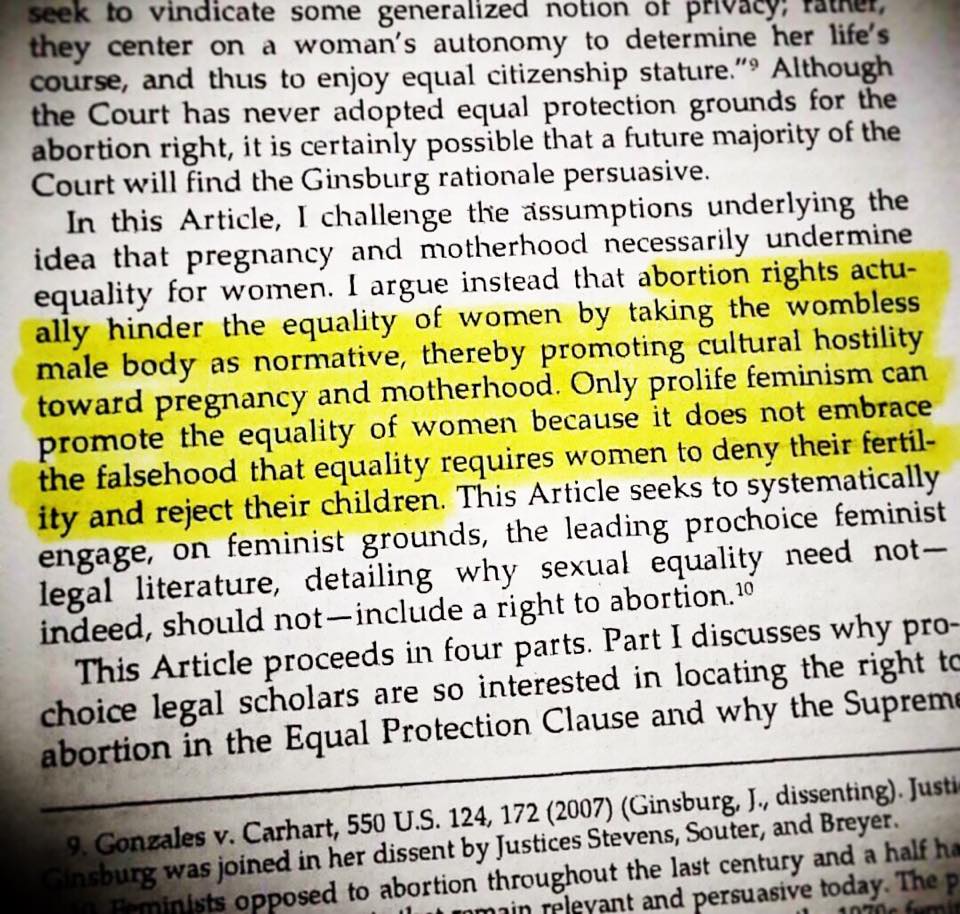Republican presidential candidate Carly Fiorina made one thing crystal clear at the CNN debate. . . : progressivism no longer owns feminism. And it’s about time.
Thus writes Lisa Torcasso Downing in a post at Life Outside the Book of Mormon Belt. She goes on to decry the fact that conservative women have felt–because of the association between feminism and liberal/progressive politics–the need to abandon the movement (or at least the term), although she doesn’t necessarily blame them for doing so:
In general terms, feminism claims its goal is to broaden opportunity for women, but when most Americans hear the word “feminist,” they attach to the word tangential philosophies conservative women reject on intellectual, emotional, and spiritual levels, including socialism as an acceptable political framework for the U.S. and social justice as a means to equality.
Torcasso put’s her finger on exactly my reluctance–and the reluctance of a lot of men and women I know–to go near the term “feminist” with a 10-foot pole. Instead, however, feminism should be simply “The freedom to choose a life, a path, a journey, and an adventure according to the dictates of our own mind, will, conscience, and being.” Obviously Torcasso doesn’t expect for liberal feminists to get behind Fiorina, but she does conclude by saying that:
if you can’t look at Carly Fiorina on that stage, positioned beside ten prominent Republican men, and feel a little thrill that this woman is a viable candidate for the presidency of the United States, then your feminism is dead, strangled by the cords with which you have tied yourself to progressivism.
I want to add one more thing. A pro-life friend of mine recently shared this image on Facebook:
I think it’s important to point out that conservative feminism is not actually just feminism with the progressive / liberal bits taken back out. Conservative feminism is, therefore, not just the idea of freedom for women. That notion–the kind of apolitical source of feminism–is just that, apolitical. What makes a conservative feminism is precisely that it is political, that it incorporates the idea of feminine dignity and feminine power into an ideology that goes beyond merely being pro-woman.
Liberal feminism is not just pro-woman. It has a whole set of attitudes and philosophical assumptions to go along with it and–even if you disagree with practically all of them (as I do)–they enrich the conversation. So that’s the additional loss that we all suffer due to feminism being more or less wholly subverted by left-wing ideology: there’s a whole continuum of feminist thought that is being silenced. There are attitudes and there are policies and there are insights that are only possible when one combines conservatism with feminism. Views like the one expressed in the quote above, which comes from the paper “Embodied Equality: Debunking Equal Protection Arguments for Abortion Rights” by Erika Bachiochi.
Papers like this one pose a vital question for liberal feminism: which is more important? Liberalism? Or feminism? All too often, the answer has been the former rather than the latter.

I just wanted to say that I’m pro-choice, but I’m enormously grateful for your thoughtful writing here. It is very easy to dismiss the pro-life argument as ‘evil men want to stop women having control over their own bodies’. Thank you for helping me to understand a different point-of-view a little better.
You write: “So that’s the additional loss that we all suffer due to feminism being more or less wholly subverted by left-wing ideology: there’s a whole continuum of feminist thought that is being silenced.”
And a whole continuum that is not being owned by conservative women, who are, indeed, feminist in their desire for gender equality. Perhaps conservative women are more inclined to use the words “gender opportunity.” Even equality is a word coded with progressive ideas. I don’t know that conservative women can be successful at re-branding words like “feminism” and “equality,” but I do know that it seems 99.9% of the conservative women I know will stand strong for women’s rights. We just won’t use the word “feminist.” And that brands us as weak and submissive in the eyes of progressives. That’s wrong and crippling to the advancement of gender issues. There’s no reason we can’t work together, except of course, that our politics get in the way.
Thanks for the shout-out.
Thank you for this! For those of us who have a whole spectrum of views, which includes ones that lean right, some left or moderate, we often feel lost or left out because we simply don’t hew to certain orthodoxies, even though we agree with some view or principles. And progressive feminism has it’s own rigid orthodoxy, just as evangelical Christianity, or certain sects of it, does.
It does stifle expressing oneself for fear of being flamed online, or labeled with some nasty pejorative and considered a betrayer or traitor to the cause just because one genuinely feels different about something. There are those of us who have left either major party and become Independent as it fits to be able to look at different sides and ideas, while still having a preference on major issues. One is left with the feeling that there are plenty of good ideas out there, but will they get a hearing because someone doesn’t fit a certain mold or hold to party or issue loyalty? The optimist in me keeps hoping that some things will see the light of day and overcome party and ideological orthodoxy and be of benefit to many and respected by all.